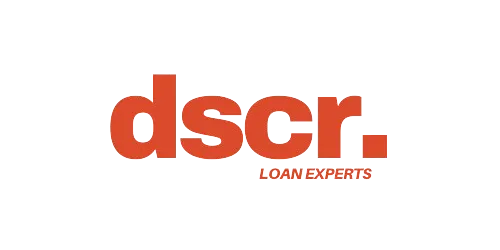
DSCR Loan Rates: What to Expect in 2025 for Loans
What is the Average Interest Rate for DSCR Loans?
Debt Service Coverage Ratio (DSCR) loans are specialized financial products designed primarily for real estate investors and commercial borrowers. These loans are assessed based on the cash flow a property generates, ensuring that the income is sufficient to cover the debt obligations.
Understanding the average interest rate for DSCR loans is crucial for potential borrowers, as it affects the overall cost of financing and the viability of investment projects.
Current DSCR loan interest rates vary based on the borrower's DSCR ratio and loan term. Expected interest rates for 2025 are influenced by factors such as inflation, and using a DSCR calculator can help investors find the best rates for their real estate investments.
Understanding DSCR Loans
Definition of DSCR Loans
A DSCR loan, or Debt Service Coverage Ratio loan, is a specialized financing option tailored for real estate investors looking to fund rental properties. Unlike conventional loans that rely heavily on the borrower’s personal income, DSCR loans focus on the property’s income to qualify.
This means that the loan approval is based on the property’s ability to generate enough cash flow to cover its loan payments, making it an ideal choice for real estate investors who may have high debt-to-income ratios but own profitable rental properties.
How DSCR Loans Work
DSCR loans operate by evaluating the property’s net operating income (NOI) to determine the borrower’s eligibility. The lender calculates the DSCR by dividing the NOI by the total annual debt service.
A higher DSCR signifies that the property generates sufficient income to meet its debt obligations, thus presenting a lower risk to the lender. This lower risk can translate into more favorable loan terms, such as reduced interest rates and higher loan amounts, making DSCR loans an attractive option for real estate investors.
Benefits of DSCR Loans for Real Estate Investors
For real estate investors, DSCR loans offer several significant benefits. One of the primary advantages is that they do not require personal income documentation, simplifying the qualification process for investors with high debt-to-income ratios.
Additionally, DSCR loans often come with more flexible terms compared to conventional loans, including longer loan periods and lower down payment requirements. These features make DSCR loans a versatile and accessible financing solution for investors aiming to expand their rental property portfolios.
Factors Influencing DSCR Loan Rates

The DSCR interest rates for DSCR loans can vary widely based on several key factors, including how these rates are calculated and influenced by net operating income (NOI) and borrower credit spread:
Borrower’s Creditworthiness: Lenders evaluate the borrower’s credit score and financial history. Higher credit scores typically result in lower interest rates.
Property Type and Location: Commercial properties in prime locations or with high demand may attract lower interest rates due to perceived lower risk.
Loan-to-Value Ratio (LTV): A lower LTV ratio indicates less risk for the lender, often resulting in more favorable interest rates for the borrower. Strategies for obtaining the best DSCR loan rates include improving credit scores, understanding market conditions, and comparing these rates to conventional loans.
DSCR Value: The higher the DSCR, the better the loan terms. A DSCR above 1.25 is generally seen as healthy, indicating that the property generates sufficient income to cover the loan payments.
Market Conditions: Interest rates fluctuate based on broader economic conditions, including central bank policies, inflation rates, and the overall demand for commercial real estate financing.
Calculating DSCR Loan Interest Rates
Identify Net Operating Income (NOI)
To accurately calculate the DSCR loan interest rate, it is essential to first identify the property’s net operating income (NOI). The NOI is the total income generated by the property after deducting all operational expenses. This includes rental income, minus costs such as property taxes, insurance, maintenance, and management fees.
Accurately calculating the NOI is crucial, as it forms the foundation for determining the DSCR and, consequently, the interest rate. A precise NOI calculation ensures that the DSCR reflects the property’s true cash flow, enabling lenders to assess the risk accurately and offer appropriate loan terms.
Current Average Interest Rates
As of mid-2024, the average interest rates for DSCR loans typically range between 6% to 9%. This range reflects a variety of scenarios including different property types, borrower profiles, and market conditions. The loan amount also impacts interest rates, with larger loans usually associated with lower rates due to reduced risk for lenders.
Prime Borrowers: Individuals or entities with excellent credit scores, substantial down payments, and properties in high-demand areas might secure rates at the lower end of the spectrum, around 6% to 7%.
Average Borrowers: Those with moderate credit scores and properties in less competitive markets can expect rates ranging from 7% to 8%.
Higher Risk Borrowers: Borrowers with lower credit scores or properties in less desirable locations might face rates closer to 9% or even higher, depending on the perceived risk.
Comparison to Other Loan Types
When compared to other loan products, DSCR loan interest rates are generally higher than residential mortgage rates but can be competitive with other types of commercial real estate loans. Understanding how monthly payments for DSCR loans are calculated based on property income and debt obligations is crucial for potential borrowers. For example:
Residential Mortgages: As of 2024, conventional residential mortgage rates typically range from 5% to 7%, depending on the borrower’s profile and market conditions.
Traditional Commercial Loans: These can range from 4% to 8%, with terms heavily dependent on the specific nature of the loan and the borrower’s financial standing.
Conclusion
Understanding the average interest rate for DSCR loans is pivotal for real estate investors and commercial borrowers. While the rates fluctuate based on a myriad of factors, knowing the typical range can help borrowers make informed decisions and better prepare for negotiations with lenders.
As always, it is advisable to shop around and compare offers from multiple lenders to secure the best possible terms. Additionally, maintaining a strong credit profile and choosing investment properties wisely can significantly impact the interest rates available to borrowers, ultimately affecting the profitability of their investments.
A property's cash flow is crucial in securing favorable DSCR loan interest rates and ensuring the overall financial health of rental properties.


